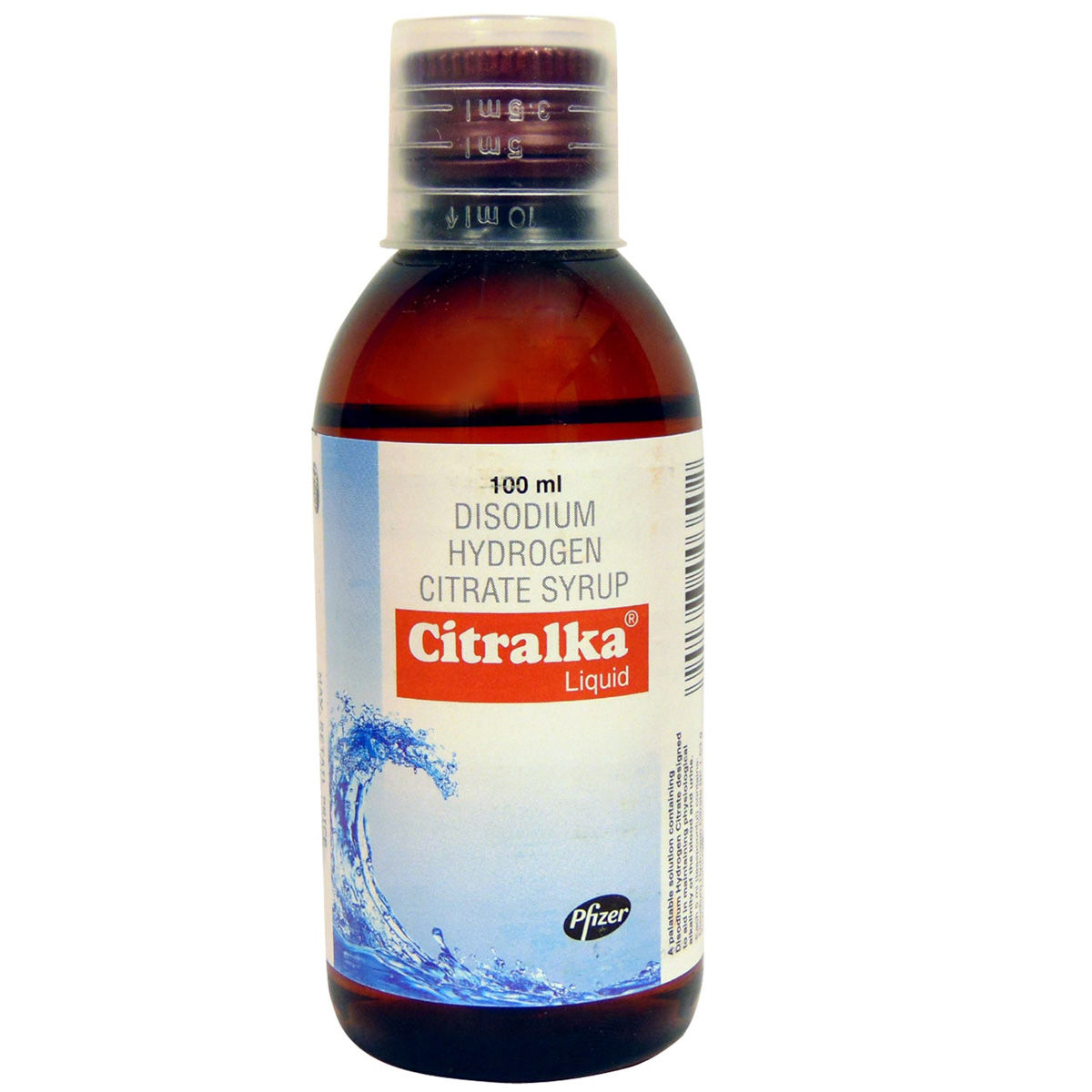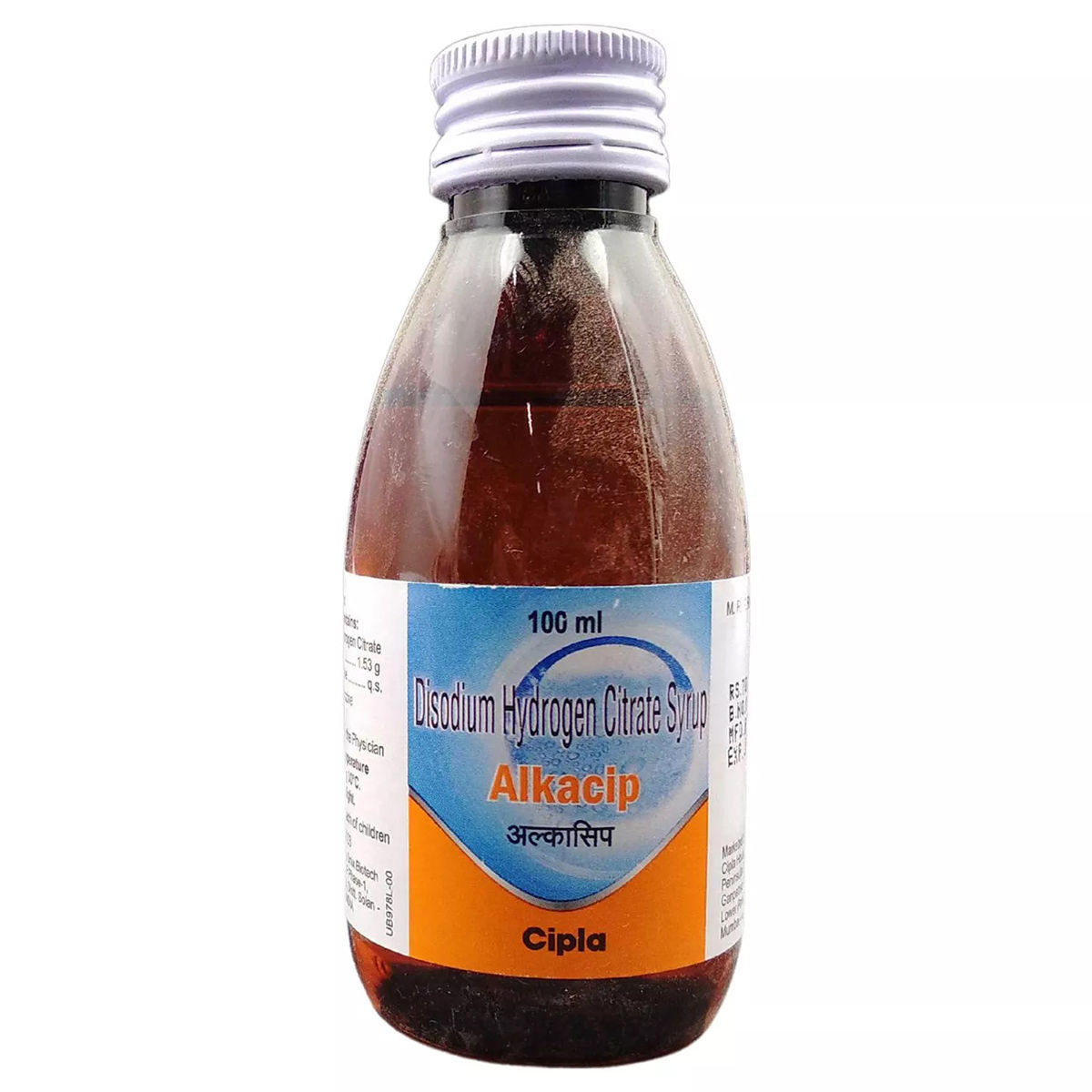Enfalyte Syrup
₹58.5*
MRP ₹65
10% off
₹55.25*
MRP ₹65
15% CB
₹9.75 cashback(15%)
Free Delivery
With Circle membership
(Inclusive of all Taxes)
This offer price is valid on orders above ₹800. Apply coupon PHARMA10/PHARMA18 (excluding restricted items)
Know Your Delivery Time
Provide Delivery Location


Secure Payment

India's Most Trusted Pharmacy

Genuine Products
Composition :
Manufacturer/Marketer :
Consume Type :
Return Policy :
About Enfalyte Syrup
Enfalyte Syrup is a urinary alkaliser indicated for the treatment of renal tubular acidosis, gout and kidney stones. Kidney stones are small, hard deposits made up of calcium, phosphate and other minerals/acid salts that stick together in concentrated urine. Renal tubular acidosis is a condition in which the kidneys fail to excrete acids into the urine; this causes the blood to remain too acidic.
Enfalyte Syrup contains disodium hydrogen citrate, which metabolises to bicarbonate and increases the excretion of free bicarbonate ions; this increases the solubility of cysteine in the urine and ionises uric acid to soluble urate ion. This helps in increasing the urinary pH, thereby making the urine less acidic.
You are advised to take Enfalyte Syrup for as long as your doctor has suggested it for you, depending on your medical condition. In some cases, you may experience certain common side effects, such as abdominal discomfort, diarrhoea, tiredness, nausea, and vomiting. Most of these side effects do not require medical attention and will resolve gradually over time. However, you are advised to talk to your doctor if you experience these side effects persistently.
Consult your doctor before taking Enfalyte Syrup if you are pregnant or breastfeeding. Avoid alcohol consumption while taking Enfalyte Syrup. It is not known if Enfalyte Syrup affects your ability to drive; drive only if you are alert. Talk to a doctor before giving Enfalyte Syrup to children. Keep your doctor informed about your health condition and medicines to rule out any side effects.
Uses of Enfalyte Syrup
Directions for Use
Medicinal Benefits
Enfalyte Syrup is a urinary alkaliser indicated for the treatment of renal tubular acidosis, gout and kidney stones. Enfalyte Syrup contains disodium hydrogen citrate, which metabolises to bicarbonate and increases the excretion of free bicarbonate ions; this increases the solubility of cysteine in the urine and ionises uric acid to soluble urate ion. This helps in increasing the urinary pH, thereby making the urine less acidic. Enfalyte Syrup may also help to treat urinary tract infections.
Side Effects of Enfalyte Syrup
- Abdominal discomfort
- Diarrhoea
- Tiredness
- Vomiting
- Nausea
Storage
Drug Warnings
Do not take Enfalyte Syrup if you are allergic to any of its contents. Inform your doctor if you have hyperkalaemia (high levels of potassium), hypocalcaemia (low blood calcium levels), high blood pressure, oedema, increased alkalinity in the blood, urinary tract infection, or kidney dysfunction. Consult your doctor before taking Enfalyte Syrup if you are pregnant or breastfeeding. Avoid alcohol consumption while taking Enfalyte Syrup. It is not known if Enfalyte Syrup affects your ability to drive; drive only if you are alert. Talk to a doctor before giving Enfalyte Syrup to children.
Therapeutic Class
Drug-Drug Interactions
Drug-Food Interactions
Drug-Drug Interactions Checker List
- FUROSEMIDE
- TETRACYCLINE
- QUINIDINE
- EPHEDRINE
- PSEUDOEPHEDRINE
Diet & Lifestyle Advise
Drink plenty of fluids as they help in flushing out excess minerals.
Limit salt intake. High amounts of salt can increase the risk of kidney stones.
Maintain a healthy weight by exercising regularly.
Avoid foods rich in oxalates such as spinach, nuts, okra, dates, avocado, hot chocolate, cocoa, baked potato, French fries, and cereals, as they might increase the risk of oxalate stones.
Habit Forming
How Enfalyte Syrup Works
What if I have taken an overdose of Enfalyte Syrup
Alcohol
Caution
Avoid alcohol consumption while taking Enfalyte Syrup.
Pregnancy
Caution
Please consult your doctor if you have any concerns regarding this; your doctor will prescribe only if the benefits outweigh the risks.
Breast Feeding
Caution
Consult your doctor before taking Enfalyte Syrup; your doctor will decide whether Enfalyte Syrup can be taken by breastfeeding mothers or not.
Driving
Caution
It is not known if Enfalyte Syrup affects your ability to drive. Drive only if you are alert.
Liver
Caution
Limited information is available regarding the usage of Enfalyte Syrup in patients with hepatic impairment. Please consult your doctor if you have liver problems or any concerns regarding this.
Kidney
Unsafe
Avoid taking Enfalyte Syrup if you have kidney impairment. Please consult your doctor if you have kidney dysfunction or any concerns regarding this.
Children
Caution
Limited information is available regarding the usage of Enfalyte Syrup in children. Please consult a doctor.
Country of origin
Author Details
We provide you with authentic, trustworthy and relevant information
FAQs
Disclaimer
Product Substitutes














